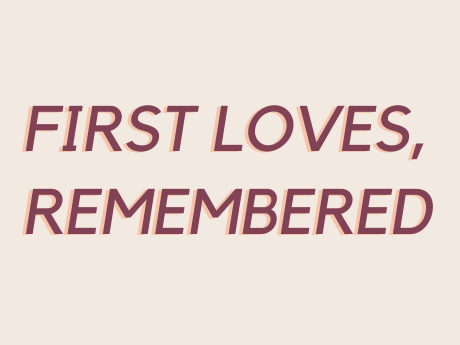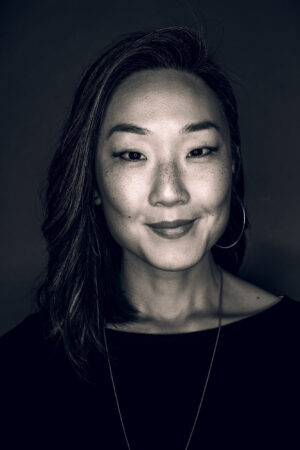First Loves, Remembered
First Loves, Remembered: Brynn Saito on Adrienne Rich

One night on Monterey Bay the death-freeze of the century
One night on Monterey Bay the death-freeze of the century:
A precise, detached calliper-grip holds the stars and the quarter-
moon
in arrest: the hardiest plants crouch shrunken, a “killing frost”
on bougainvillea, Pride of Madeira, roseate black-purple succu-
lents bowed
Juices sucked awry in one orgy of freezing
slumped on their stems like old faces evicted from cheap hotels
—into the streets of the universe, now!
Earthquake and drought followed by freezing followed by war.
Flags are blossoming now where little else is blossoming
and I am bent on fathoming what it means to love my country.
The history of this earth and the bones within it?
Soils and cities, promises made and mocked, plowed contours of
shame and of hope?
Loyalties, symbols, murmurs extinguished and echoing?
Grids of states stretching westward, underground waters?
Minerals, traces, rumors I am made from, morsel, minuscule
fibre, one woman
like and unlike so many, fooled as to her destiny, the scope of
her task?
One citizen like and unlike so many, touched and untouched in
passing
—each of us now a driven grain, a nucleus, a city in crisis
some busy constructing enclosures, bunkers, to escape the com-
mon fate
some trying to revive dead statues to lead us, breathing their
breath against marble lips
some who try to teach the moment, some who preach
the moment
some who aggrandize, some who diminish themselves in the face
of half-grasped events
—power and powerlessness run amuck, a tape reeling backward
in jeering, screeching syllables—
some for whom war is new, others for whom it merely continues
the old paroxysms of time
some marching for peace who for twenty years did not march for
justice
some for whom peace is a white man’s word and a white man’s
privilege
some who have learned to handle and contemplate the shapes of
powerlessness and power
as the nurse learns hip and thigh and weight of the body he has
to lift and sponge, day upon day
as she blows with her every skill on the spirit’s embers still burn-
ing by their own laws in the bed of death.
A patriot is not a weapon. A patriot is one who wrestles for the
soul of her country
as she wrestles for her own being, for the soul of his country
(gazing through the great circle at Window Rock into the sheen
of the Viet Nam wall)
as he wrestles for his own being. A patriot is a citizen trying to
wake
from the burnt-out dream of innocence, the nightmare
of the white general and the Black general posed in their
camouflage,
to remember her true country, remember his suffering land:
remember
that blessing and cursing are born as twins and separated at birth
to meet again in mourning
that the internal emigrant is the most homesick of all women and
of all men
that every flag that flies today is a cry of pain.
Where are we moored?
What are the bindings?
What behooves us?
Part XI "One night on Monterey Bay the death-freeze of the century:" from "An Atlas of the Difficult World". Copyright 2016 by the Adrienne Rich Literary Trust. Copyright (c) 1991 by Adrienne Rich, from COLLECTED POEMS: 1950-2012 by Adrienne Rich. Used by permission of W. W. Norton & Company, Inc.
Twenty years ago, the Poetry Society published a series called First Loves in which we asked distinguished poets, including W.S. Merwin, Ntozake Shange, and Robert Creeley, to reflect on the poems that first captured their imaginations. The series eventually became a book, edited by Carmela Ciuraru, titled First Loves: Poets Introduce the Essential Poems that Captivated and Inspired Them. Here, we revisit that question with a new generation of poets, revealing how poetic influences both endure and change.
Brynn Saito on Adrienne Rich’s “One night on Monterey Bay”
In 2003, I was a pre-med undergraduate at UC Berkeley majoring in philosophy and taking poetry classes on the side—totally scattered, that is to say: lost, alive, lonely, and away from my Fresno home and family (in a real way) for the first time. I was waking up. I wandered a lot, probably with a Walkman (!) in my tote bag, hiking the campus’s Eucalyptus groves and roaming Telegraph Avenue with its jewelry vendors and tables of tarot cards.
One winter day—luckily enough—I was walking by the International House at the top of Bancroft Way and learned that the poet Adrienne Rich was reading in the auditorium there. Did I stay for that entire reading? Did I catch it from the start? I have no idea. All that’s burned into my memory is standing in the back and hearing her recite “One night on Monterey Bay the death freeze of the century,” a poem from her collection, An Atlas of the Difficult World: Poems 1988-1991. It was electric. Her slow, resounding, impassioned recitation created a time out of time—as all great poems and poets do. And yet, the poem was very much of the moment; she’d written it in response to the first U.S. war with Iraq and was reading it to us now, on the eve of the second. Earthquake and drought followed by freezing followed by war.
Standing in the brightly packed auditorium, I felt in my body how a poem could bring me to my senses—in the fullness of that expression. It engaged the mind with its tapestry of images (“a precise, detached calliper-grip holds the stars and the quarter-moon / in arrest”) while appealing to the moral imagination through anaphora and cascading questions (“Where are we moored? / What are the bindings?”). The poem awakened the deepest questions churning through the body politic at the turn of the 21st century—questions that feel as alive and unanswerable now as they did twenty years ago. By the grace of the muses, I witnessed one of the most beloved poets leave an audience of hundreds breathless in one of her last public readings.
“One night on Monterey Bay . . .” is a poem I return to to clarify my spirit, concentrate my mind. Like any great love, the poem makes me shiver when I summon the memory of our first encounter, makes me remember my desire, destabilizes me. How lost I was, how alive. How in need of poetry and art to anchor, to free. How true this remains. On that cold, bright, Bay Area morning, Rich slowly delivered the poem’s final line, each word laced with a deep quiver: “What behooves us?” The question entered the light.


